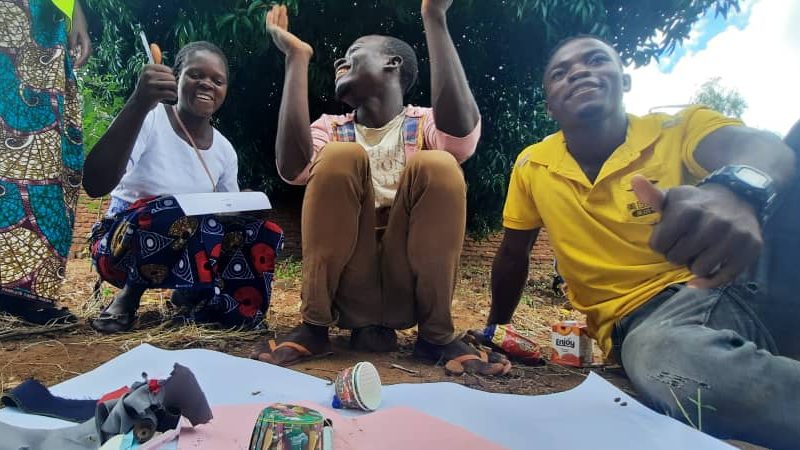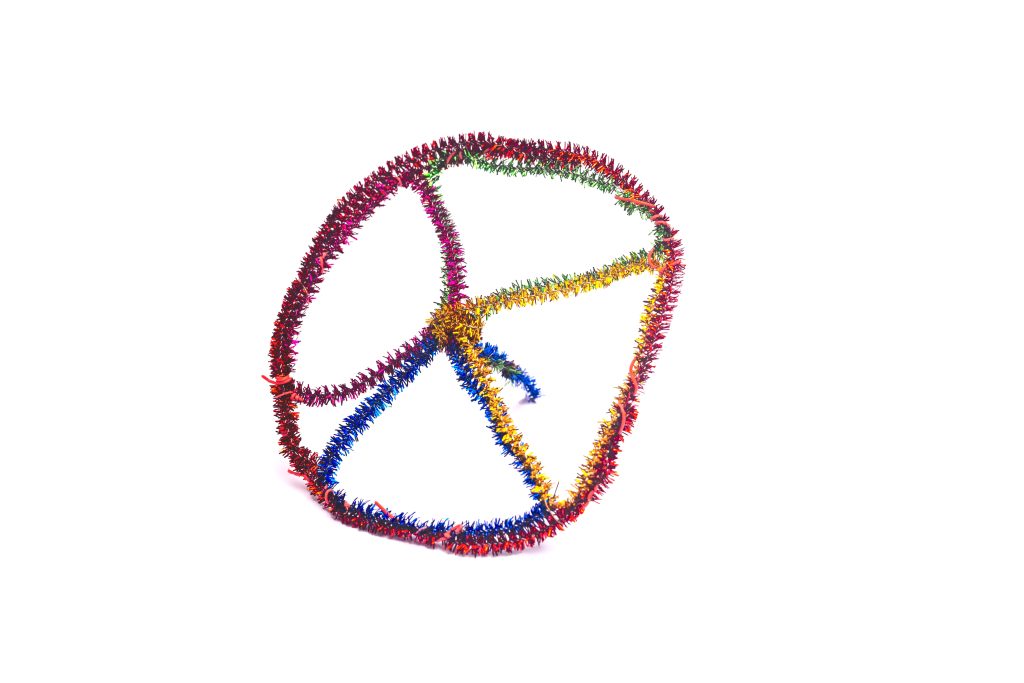I don’t know if the curriculum has changed, but in my time we had winter, spring, summer and autumn.
So the green part is the spring, this is where you have funding, you have rainfall. And rainfall is associated with crops, it is very beautiful and you see it is always green. It means everything is ok.
I wanted the red for this part, summer: when it is dry, where you have no funding, or when the funding comes to end, and they say “oh we have changed our forecast, we are doing advocacy, there is no funding”. They give a lot of reasons. Bascially no rainfall, no funding, dry.
This one is autumn, where immediately after the funding, after the growing season, you harvest. There is a time when you have done well in a project, and there is no funding left, but they use you a lot. They say “oh can you send us this thing, we are attending an international conference and we want to feature the work of that particular project”. So the communication is there, you keep on providing information and success stories, but you have no funding from them. Usually at this time they check on sustainability to see if the communities are still doing the work, so you are still keeping in touch even though they are not funding you. You have to be really good so that they publicise you, so that when others see it they come to you. So it is a season on its own.
So winter – the cold season – this is the time when nothing new is coming. You know that there are donors there, but they are just quiet. They are more or less providing funding [to others] but not necessarily engaging with you. So this is when you know that one foundation has funded another institution, but you are not necessarily benefitting. This is where they are saying, “ah no, we know you can do this but currently we are funding another organisation within the same country”. You know they are providing resources but they are not coming to you.
So donors are like seasons, they will never fund you throughout, they will change depending on emerging issues. We have to know the seasons of the donors, so we know that sometimes we may not have funding, at other times we do.
Our social enterprise relates to the seasons too. It is like ‘make hay when the sun shines’ – so when the funding is there we need to maximise. Because it can also go through the same seasons. But if the social enterprise had done good work when the funding was there to sustain the operations, it can help us to prepare for different seasons. The seasons, the dry spells can be caused by a number of factors. For example, COVID brought everything to a standstill, there was nothing that our social enterprise could do because it was a global issue, people stopped travelling. But if we do well when business it there, when it is a dry spell then we will still have resources. I think we used to have few projects which were funded. At that time we had no idea that there would be a dryspell. Now when we look back and say, at that time when there were lots of projects, if we had this idea then it would have been good.
I’m not sure if the planning is there for the seasons. For example in April to May we should expect a lot of business, initiation ceremonies, weddings, and celebrations. Towards December up to April everyone is focused on the field, on their crops – you need to buy fertilizer, you need to make sure people are doing the work. That’s the time when people have hunger, it is the lean period, so they don’t have money for weddings. Currently almost every weekend the social enerprise is busy, but there will come a time when there is not much.
And sometimes the seasons can change, like looking at a business like our social enterprise, you might have different players in that industry. For example, we have a conference centre here, we never know who might else start a conference centre. So maintaining quality standards and being innovative and doing research on what the market is like can also help us even if the seasons changes.
I think the seasons should make us plan well ahead of time, when things are ok we should never relax thinking that it will be like this forever, because donors are like seasons. You can have 10 donors for the next two years, the other time you will only have one donor, and you are losing skilled personnel in the process. So we need to think ahead and invest for that time when we will not have as many donors.

